Attention-Deficit/Hyperactivity Disorder, or ADHD, is a condition that affects millions of people worldwide. It’s known for symptoms like trouble focusing, impulsiveness, and sometimes hyperactivity that doesn’t quite match someone’s age. Kids and adults with ADHD often struggle to stay organized or sit still. However, there’s another challenge that doesn’t get as much attention: sleep problems. For many, ADHD doesn’t just make daytime tasks harder. It can also mess with their ability to rest at night.
Sleep problems are more common in people with ADHD than you might think. The racing thoughts, restlessness, and difficulty winding down that usually come with ADHD can make falling or staying asleep a real battle. This isn’t just about feeling tired; it can make ADHD symptoms worse, including trouble concentrating and controlling emotions. Studies show that addressing rest problems can actually improve overall well-being for those with ADHD. Addressing sleep problems can be a key part of managing ADHD.
Why does this matter? Good rest is essential for everyone, but for someone with ADHD, it’s even more critical. Poor rest can amplify their challenges, creating a tough cycle to break. That’s why understanding how ADHD and rest are connected is a big step toward better health and happier days. Today, we’ll explore the connection between ADHD and sleep problems.
Common Sleep Disorders Associated with ADHD
People with ADHD often deal with sleep disorders that go beyond just tossing and turning. These issues can make life even trickier, and they show up more often in those with ADHD than in people without it. Some of the most common ones include:
- Insomnia
- Restless legs syndrome
- Sleep apnea
Each of these can affect someone with ADHD differently, adding extra challenges to their daily struggles.
Insomnia is a big one – it’s when falling or staying asleep feels impossible. For people with ADHD, a busy brain might keep them up, replaying thoughts or worries. Then there’s restless legs syndrome, which brings an itchy, crawly feeling in the legs that begs for movement, especially at night. This can ruin any chance of a peaceful rest. Sleep apnea, on the other hand, involves breathing pauses during rest, leaving people tired and foggy even after a full night in bed.
These disorders don’t just steal rest – they hit harder for those with ADHD. The lack of rest can make focus, mood, and energy levels tank, which are already tough spots for them. Compared to others, the impact feels amplified because ADHD already taxes the brain’s ability to regulate itself. Knowing about these rest challenges is the first step to tackling them head-on.
Insomnia and ADHD: The Struggle for Rest
Insomnia is like an uninvited guest for many with ADHD. It’s not just about lying awake – it’s having a mind that simply won’t shut down. For these people, bedtime can turn into a battle against racing thoughts, fidgeting, or just feeling too wired to relax. Studies suggest that up to 70% of adults with ADHD report some form of insomnia, making it a huge hurdle.
The effects spill over into the day. Without solid sleep, irritability creeps in, focus slips away, and emotions can feel like a rollercoaster. For someone with ADHD, who might already struggle with these things, insomnia piles on extra weight. It can worsen mental health too, feeding anxiety or low moods that make everything feel heavier.
So, what helps? A few strategies stand out. Setting a consistent bedtime routine can signal the brain it’s time to wind down – think dim lights, no screens, a calm audiobook. Relaxation techniques, like deep breathing or mindfulness, can quiet those buzzing thoughts. Some also find that cutting caffeine later in the day or talking to a doctor about medication adjustments makes a difference. Managing insomnia won’t cure ADHD, but it can lighten the load.
Restless Legs Syndrome and Its Impact on ADHD
Restless legs syndrome (RLS) is exactly what it sounds like: an overwhelming urge to move your legs, often accompanied by uncomfortable tingling sensations. It typically occurs at night, just when you’re trying to relax. For people with ADHD, this can be a double whammy, since their bodies and minds already lean toward restlessness.
When RLS disrupts sleep, it’s more than just annoying. The constant need to shift around delays falling asleep, and if it wakes someone up, getting back to dreamland is tough. For ADHD patients, this disrupted sleep can worsen their symptoms – like impulsivity or distractibility — the next day. Research shows a link between restless legs syndrome and ADHD, possibly tied to how both involve the brain’s dopamine system.
Relief is possible, though. Doctors might suggest iron supplements if levels are low, since that’s a common trigger. Lifestyle tweaks help too — regular exercise (but not too close to bed), warm baths, or leg massages can ease symptoms. Medications are an option for tougher cases. With the right approach, RLS doesn’t have to steal sleep from those with ADHD.
Sleep Apnea and ADHD: What You Should Know
Sleep apnea is another sleep disorder that often affects people with ADHD but may go unrecognized. It happens when breathing stops and starts during sleep, sometimes hundreds of times a night. This isn’t just snoring — it’s a serious issue that deprives the brain of oxygen and quality sleep. For someone with ADHD, the overlap is striking. Poor sleep quality from sleep apnea can mimic or worsen ADHD symptoms like:
- Inattention
- Forgetfulness
- Even hyperactivity
Identifying sleep apnea in ADHD patients isn’t always straightforward. Common signs include loud snoring, gasping awake, or feeling wiped out despite sleeping enough hours. Kids might show bedwetting or behavior changes, while adults could notice headaches or a dry mouth in the morning. Since ADHD already clouds focus and energy, sleep apnea can make it hard to tell what’s causing what.
Treatment can turn things around. CPAP machines – devices that keep airways open with steady air pressure – are a go-to fix. They take some getting used to, but they can be highly effective for many people. Other options include dental devices or, in some cases, surgery. Lifestyle changes like weight loss or sleeping on your side can help too. Addressing sleep apnea doesn’t just restore sleep – it can sharpen attention and calm behavior, giving ADHD control a boost.
The Role of Circadian Rhythm in ADHD and Sleep Disorders
The circadian rhythm is the body’s internal clock that regulates when to sleep and wake up. For people with ADHD, this clock can be out of sync. Their brains might not send the “sleepy” signal at the right time, leading to late nights and groggy mornings. This mismatch doesn’t just mess with bedtime – it can fuel other sleep disorders and make ADHD harder to handle.
When sleep patterns are disrupted, the consequences are significant. Physically, it can mean fatigue or a weaker immune system. Mentally, it clouds thinking, ramps up stress, and dims mood – all things someone with ADHD doesn’t need more of. Over time, an off-kilter circadian rhythm can even deepen issues like insomnia or restless legs syndrome. It creates a frustrating loop.
Fixing circadian rhythm starts with consistency. Going to bed and waking up at the same time every day – even weekends – helps reset the clock. Morning sunlight is a powerful ally; it signals to your brain that it’s time to be alert and active. Limiting blue light from phones or TVs at night keeps melatonin, the sleep hormone, flowing. Some people with ADHD and sleep issues find melatonin supplements helpful for regulating their sleep. However, it’s important to consult a doctor before trying them. A consistent sleep-wake schedule to align the body’s natural circadian rhythm can improve sleep quality. And it can enhance focus during the day for those with ADHD.
Behavioral Therapy for Managing Sleep Disorders in ADHD
Behavioral therapy is a powerful tool for tackling both ADHD and sleep disorders at once. It’s not about pills or quick fixes – it’s about changing habits and thought patterns to build better routines. For someone with ADHD, this approach can calm the chaos of their day and night, offering a way to control symptoms without relying solely on medication. One standout technique is cognitive behavioral therapy for insomnia, or CBT-I.
It helps reframe negative thoughts about sleep – like “I’ll never fall asleep” – and replaces them with practical steps, like sticking to a wind-down routine. Sleep hygiene education is another piece. It teaches basics like keeping the bedroom cool, dark, and quiet, or avoiding heavy meals before bed. For ADHD, these methods also target impulse control and hyperactivity that spill into nighttime.
The payoff is huge. Behavioral therapy can cut insomnia, ease restless legs urges, and even help with sleep apnea compliance (like using a CPAP). It also boosts ADHD control by improving focus and emotional balance through better rest. Adding it to a treatment plan – alongside meds or lifestyle changes – creates a well-rounded approach. It’s not instant, but with patience, it can transform sleep and daily life for those with ADHD.


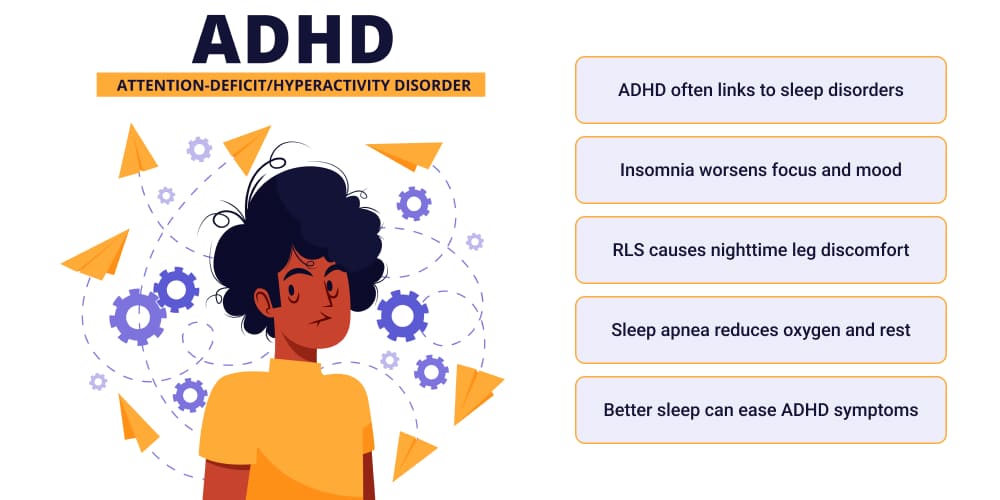
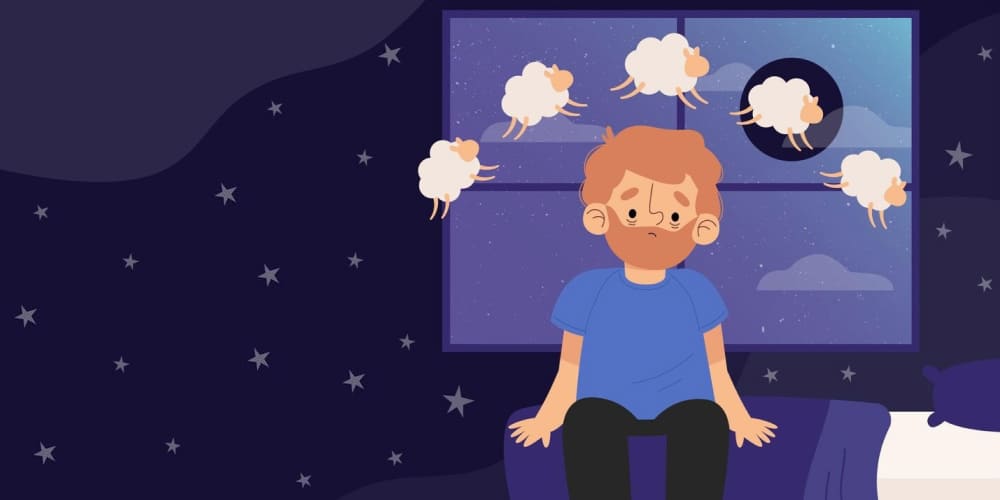


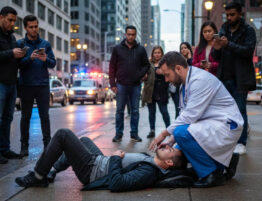
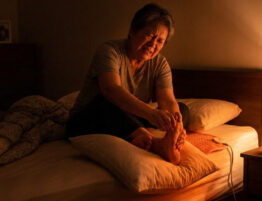
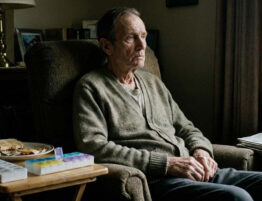
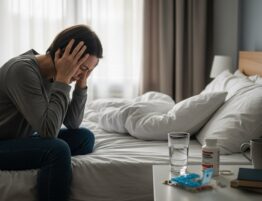
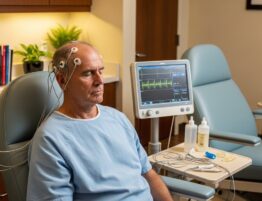

I've given up... the stress her office staff has put me through is just not worth it. You can do so much better, please clean house, either change out your office staff, or find a way for them to be more efficient please. You have to do something. This is not how you want to run your practice. It leaves a very bad impression on your business.
Please, leave your review
Write a comment: